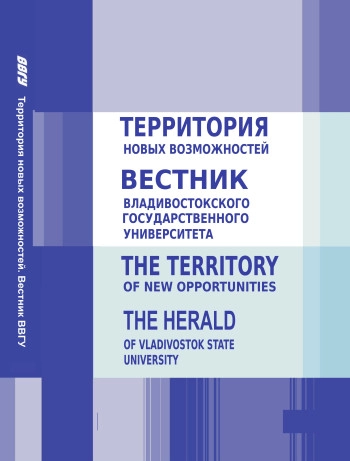employee
graduate student
Today civilistics faces numerous challenges, among which the issue of digitalization and in- troduction of artificial intelligence is not insignificant. In the article the authors consider the peculiarities of the introduction of digital technologies of China, the European Union and the United States in the legal system of the Russian Federation and analyze the legal technical and ethical issues and benefits associated with digital transformation. Such aspects as automation of current judicial tasks, use of artificial intelligence algorithms in legal proceedings, ensuring transparency of algorithms, protection of personal data and cybersecurity, the problem of unified standards for evaluation of electronic evidence are considered. The subject of the study is the norms of legislation and the prac- tice of introducing digital technologies into the judicial systems of the Russian Federation, China, the European Union and the United States, including legal risks, ethical issues. The aim of the study is to identify differences in approaches to the regulation of digital justice in these jurisdictions and to distinguish between automation (as a tool) and artificial intelligence (as a potential subject of influence). To develop recommendations for the improvement of Russian legislation taking into account international experience. The research methodology includes a comparative legal analysis of legisla- tion and judicial practice, a systematic approach to the assessment of technological and ethical risks. The results of the study are the identified advantages and disadvantages of the automation of judicial processes, the definition of transparency criteria, as well as the proposal of measures to protect personal data and ensure cybersecurity in the context of digitalization. The results of the study can be used for modernization of judicial systems, development of normative acts, as well as in academic and practical activities.
digitalization, artificial intelligence, automation, e-justice, e-courts, cybersecurity, international experience.
1. On the Development of Artificial Intelligence in the Russian Federation: Decree of the President of the Russian Federation No. 490 of October 10, 2019. Official Internet portal of legal information. URL: http://publication.pravo.gov.ru/Document/View/-0001201910110002 (accessed date: 28.03.2025).
2. The Cambridge Handbook of the Law, Ethics and Policy of Artificial Intelligence / ed. by Larry A. DiMatteo, M. Cannarsa, C. Poncibò. Cambridge: CUP; 2023. URL: https://doi.org/10.1017/9781009367783 (accessed date: 28.03.2025).
3. Umnova-Konyukhova I.A. (2022). Justice in the context of digitalization: Current aspects of formation and development. Social and Humanitarian Sciences: Domestic and Foreign Literature. Series 4: State and Law. 2022; (3): 62–75. URL: https://doi.org/10.31249/-rgpravo/2022.03.06 DOI: https://doi.org/10.31249/rgpravo/2022.03.06; EDN: https://elibrary.ru/HCJRGQ
4. On Electronic Signature: Federal Law No. 63-FZ of April 6, 2011. Official Internet portal of legal information. – URL: http://pravo.gov.ru/proxy/ips/?docbody=&nd-=102124710 (accessed date: 28.03.2025).
5. On Information, Information Technologies, and Information Protection: Federal Law No. 149-FZ of July 27, 2006. Official Internet portal of legal information. URL: http://pravo.gov.ru/proxy/ips/?docbody=&nd=102144050 (accessed date: 28.03.2025).
6. On Personal Data: Federal Law No. 152-FZ of July 27, 2006. Official Internet portal of legal information. URL: http://pravo.gov.ru/proxy/ips/?docbody=&nd-=102144051 (accessed date: 28.03.2025).
7. Yagofarov D.R. The state automated system "Justice": Digital forms of judicial and procedural activity. Young Scientist. 2024; 13 (512): 179–183. URL: https://moluch.ru/archive/512/112327/ (accessed date: 05.02.2025). EDN: https://elibrary.ru/LPDWWC
8. On the Legal Framework for the Use of Artificial Intelligence in the Russian Federation: Federal Law No. 537-FZ of July 13, 2023. Official Internet portal of legal information. URL: http://publication.pravo.gov.ru/Document/View/0001202307130034 (accessed date: 28.03.2025).
9. Kurochkin S.A. Prospects for the use of artificial intelligence in civil and arbitration proceedings. Arbitration and Civil Procedure. 2023; (2): 37–42. DOI:https://doi.org/10.18572/1812-383X2023-1-37-42. DOI: https://doi.org/10.18572/1812-383X-2023-1-37-42; EDN: https://elibrary.ru/KONGNM
10. Ermakova E.P., Pukharta A.A. Implementation of digital technologies in EU civil proceedings: Case study of the Regulation and Directive on digitalization of cross-border judicial cooperation and access to justice. Legal Science. 2024; (2). URL: https://cyberleninka.ru/article/n/vnedrenie-tsifrovyh-tehnologiy-vgrazhdanskomsudoproizvodstve-es-na-primere-realizatsii-polozheniy-reglamenta-idirektivy-o (accessed date: 12.01.2025). EDN: https://elibrary.ru/EWAQKY
11. Tereshin M.V. Legal regulation of personal data protection in the Russian Federation and the EU in the context of the General Data Protection Regulation (GDPR). Education and Law. 2019; (8). URL: https://cyberleninka.ru/article/n/pravovoe-regulirovaniezaschitypersonalnyh-dannyh-v-rf-i-es-v-kontekste-vstupleniya-v-silu-obschego-reglamenta-pozaschite-dannyh (accessed date: 11.01.2025). EDN: https://elibrary.ru/FVMJQA
12. The Law on Artificial Intelligence of the European Union (AI Act): Regulation of the European Parliament and of the Council (EU) 2024/. URL: https://digitalstrategy.ec.europa.eu/en/policies/ai-act (accessed date: 03.28.2025).
13. AI Continent Action Plan: an official document of the European Union on artificial intelligence. Brussels: European Commission; 2021. URL: https://digitalstrategy.ec.europa.eu/en/policies/ai-continent-action-plan (accessed date: 03.28.2025).
14. Balchindorzhieva O.B., Myakhanova A.N., Sapkeev D.V. Philosophical, legal, and ethical aspects of the "smart court" organization: The Chinese experience. Bulletin of BSU.2023; (3). URL: https://cyberleninka.ru/article/n/filosofsko-pravovye-ieticheskie-aspektyorganizatsii-umnogo-suda-kitayskiy-opyt (accessed date: 11.01.2025).
15. Chen B.M., Li Z. How will technology change the face of Chinese justice? Columbia Journal of Asian Law. 2020; 34 (1): 1–58. DOI:https://doi.org/10.7916/cjal.v34i1.7484
16. Shi Ch., Sourdin T., Li B. The smart court – A new pathway to justice in China? International Journal for Court Administration. 2021; 12 (1), Article 4. DOI:https://doi.org/10.36745/ijca.367 EDN: https://elibrary.ru/MXAVFD
17. Rogozhina S.G., Shcherbinina N.S. "Electronic justice": a comparative legal analysis. Journal of Legal Research. 2020; (3): 86–91. URL: https://naukaru.ru/ru/nauka/article/39852/view (accessed date: 10.01.2025). EDN: https://elibrary.ru/SDBRML
18. Re R., Solow-Niederman A. Developing artificially intelligent justice. Stanford Technology Law Review. 2019; (242): 242–289. URL: https://papers.ssrn.com/sol3/papers.cfm?abstract_id=3390854 (accessed date: 11.01.2025).
19. Krysanova N.V. On the legal personality and legal development of artificial intelligence. Consultant. URL: https://cyberleninka.ru/article/n/k-voprosu-opravosubektnosti-ipravovom-razvitiiiskusstvennogo-intellekta (accessed date: 11.01.2025).
20. Burdina E.V. (2022). Digital access to court in the Russian Federation: Problems of legal regulation. Russian Judge. 2022; (10): 49–53. DOI:https://doi.org/10.18572/1812-3791-2022-10-49-53 EDN: https://elibrary.ru/HHDGWM
21. Zuikova M.S. (2023). Artificial intelligence as a subject of civil law. Forum of Young Scientists. 2023; (11): 38–48. DOI: https://doi.org/10.5281/zenodo.10439420; EDN: https://elibrary.ru/WVRJMM





